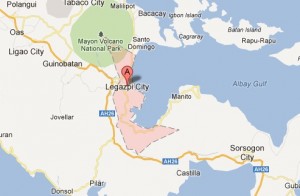Albay health office on meningococcemia alert
LEGAZPI CITY, Philippines—Health authorities here have stepped up surveillance and contact-tracing activities following the death on Wednesday of a 17-year-old female suspected of having contracted meningococcemia, a highly contagious and often fatal acute infection of the blood stream, the Albay Provincial Health Office said Friday.
Dr. Luis Mendoza, head of the health office, said the patient was admitted to the Cope Hospital in Tabaco City on Wednesday after she complained of fever and rashes.
The patient died later in the evening. Her attending physicians suspected the victim might have acquired meningococcemia, Mendoza said.
The Cope Hospital immediately coordinated with the Tabaco City Health Office and reported the case after which health officials decided to immediately bury the girl at the Tabaco Public Cemetery.
Mendoza said the patient, a native of Aroroy, a mining town in Masbate, is a Food Technology student at Bicol University in Tabaco City.
She was staying at a boarding house in barangay Matagbak, Tabaco City.
Before the opening of classes, the victim stayed with her aunt for a week, or from June 4 to 11, at Barangay Villahermosa, Daraga, and went to Tabaco City on June 11 and stayed at her boarding house.
Mendoza said that in coordination with the DOH Regional Epidemiology Surveillance Unit they have fielded surveillance teams to trace the people the girl had contact with.
“We are now in the process of monitoring febrile cases in the identified areas where the victim might have visited,” Mendoza said.
Meningococcemia is an acute and potentially life-threatening infection of the blood stream caused by a bacteria called Neisseria meningitidis.
The bacteria frequently live in a person’s upper respiratory tract without causing visible signs of illness. The bacteria can be spread from person to person through respiratory droplets or air borne.
Family members and those closely exposed to someone with the condition are at increased risk of contracting the ailment.
Symptoms may include fever, rashes, headache, anxiety, irritability, muscle pain, and nausea. Later on symptoms may include changing level of consciousness and large areas of bleeding under the skin.
Originally posted: 12:28 pm | Friday, June 15th, 2012















